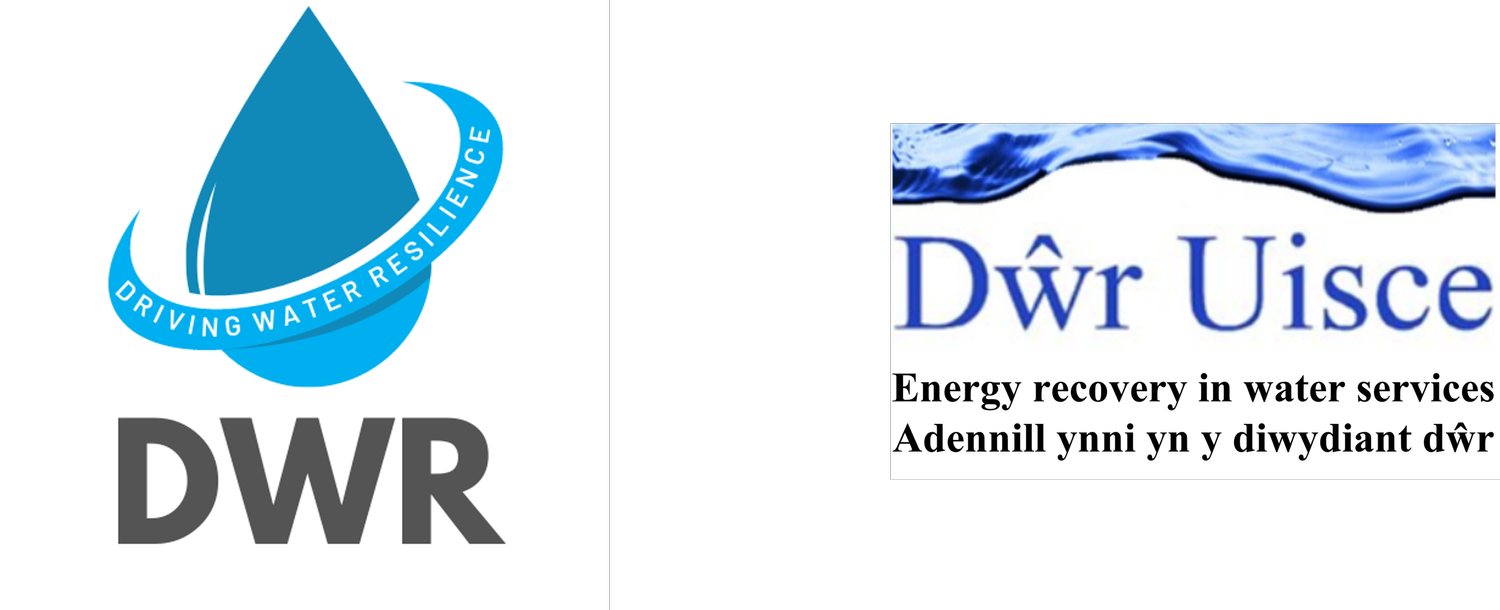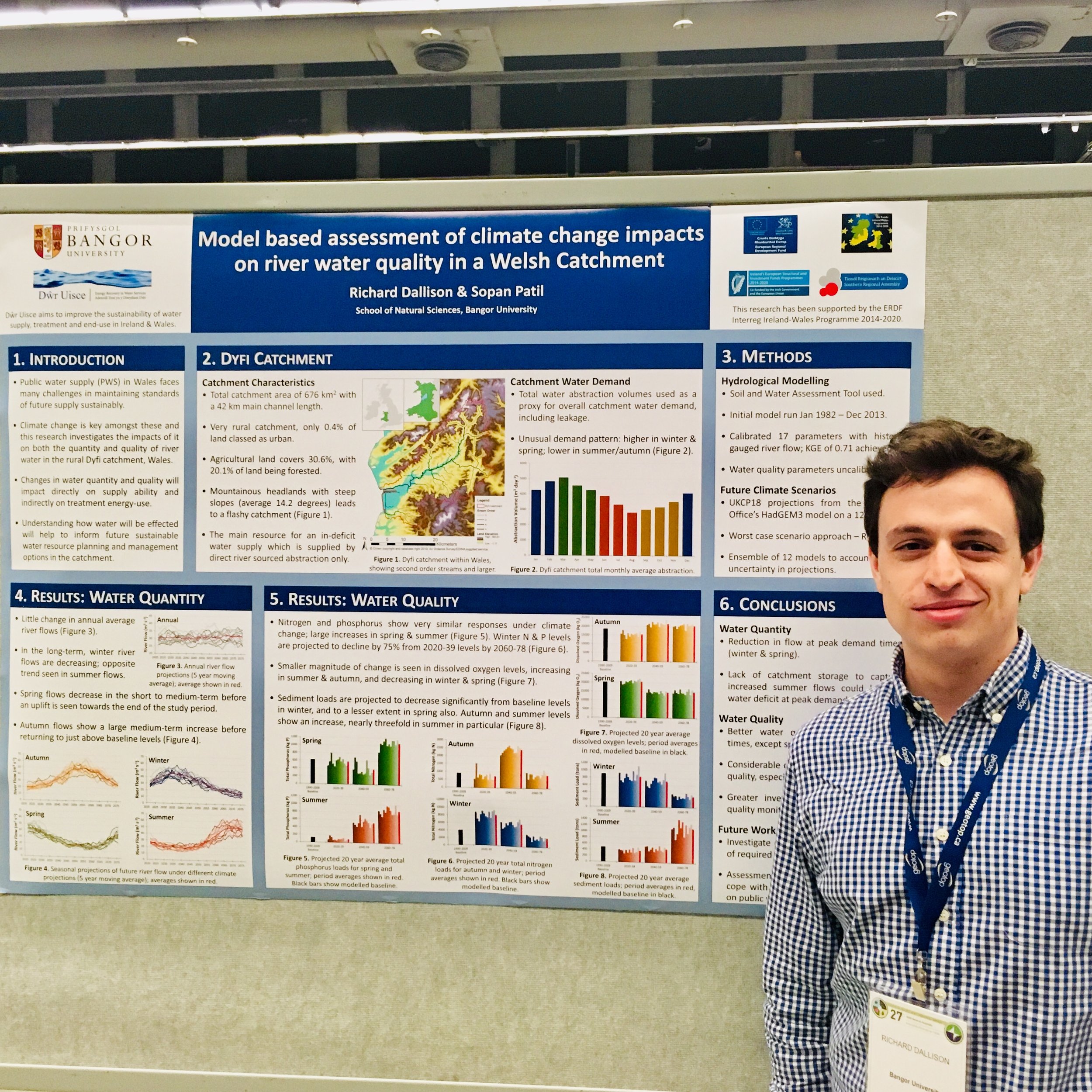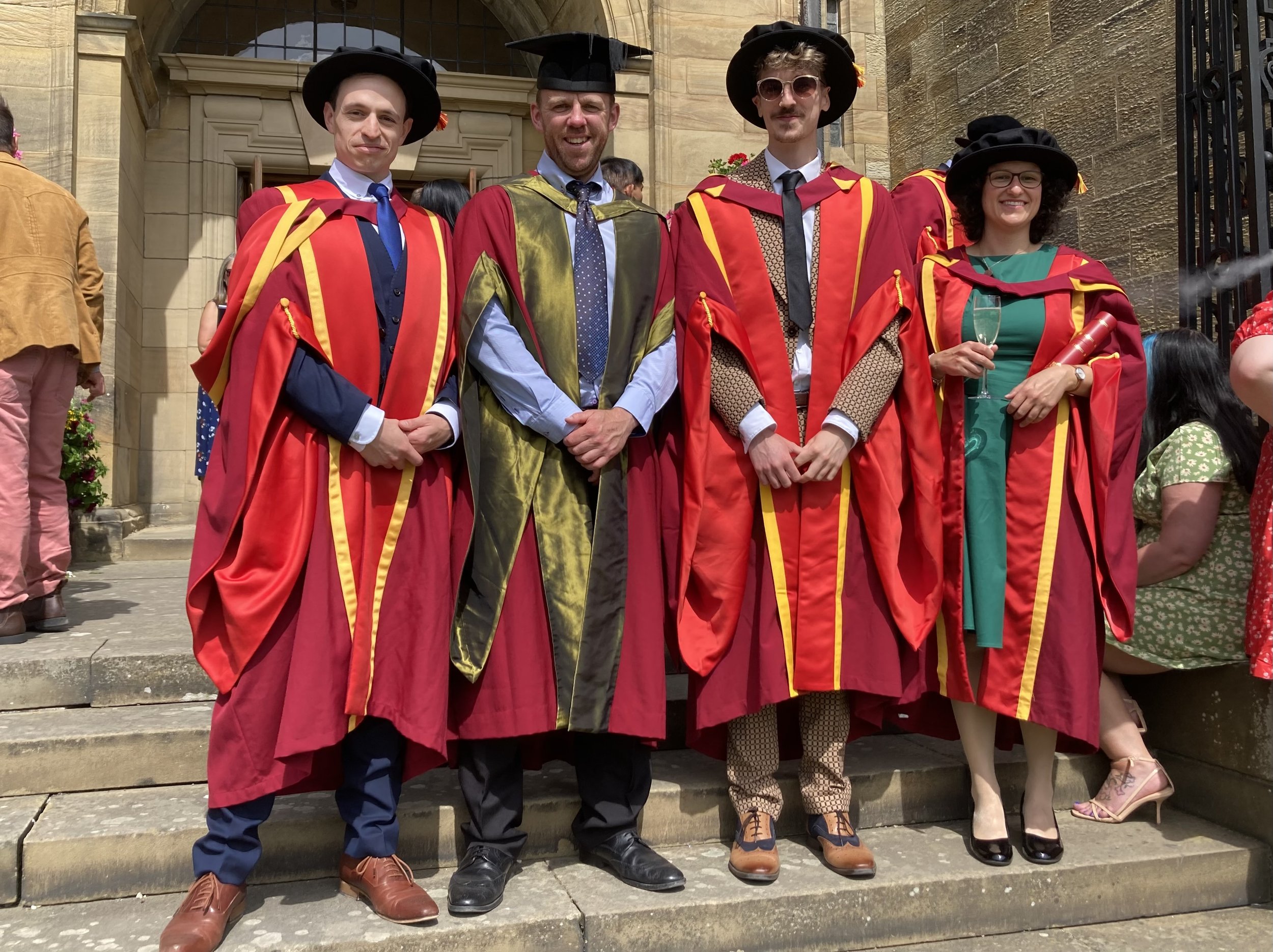Richard Dallison
I started with the Dŵr Uisce project as PhD researcher at Bangor University in November 2016 having graduated from my undergraduate BSc in Geography with International Experience in July of the same year. Having had a keen interest in hydrology and hydropower during my undergraduate studies I was thrilled to get the opportunity to undertake a PhD in a project related to these fields. As a researcher in Work Package 7 (WP7) - Climate Change Impacts and Adaptation, I was taken in the direction of a topic that I had studied previously but had had little opportunity to explore in relation to river systems and water supply.
Through the course of the past six years, I have been delighted to be able to constantly develop new research areas based on the results of our previous work. Being part of such a long-running research project has afforded this luxury and has led to the project outputs seen today. I am proud of all of the research we have conducted in WP7 during the project, as well as the research papers published to date. Our initial work focused on water resource and water demand in five Welsh catchments, while our latest research has looked at streamflow projections in 585 catchments across the UK and Ireland, the implications for 531 hydropower schemes therewithin, and the impact of abstraction licences. This latest work I am particularly pleased with, as it is a culmination of the methods and skills developed through the project and represents a substantial contribution to research in the area. A paper of the results of the early stages of our latest research is currently under review for publication, with a further two papers under preparation for submission in the coming weeks.
Study catchment and front cover of report prepared for the Talybont Community Flood Group as part of our non-financial support scheme.
I have enjoyed working with organisations external to the project over the past few years, both in terms of chances to calibrate on research studies through discussions, data sharing, and opportunities such as site tours, as well as with organisations with whom we’ve provided support. I have found particularly rewarding our work with smaller organisations through our non-financial support scheme, providing guidance and advice for free which might otherwise have been unobtainable to them. A recent example of such work has been with Talybont Community Flood Group, where I, as part of WP7, was able to conduct a hydrological modelling study, highlighting areas of the Leri catchment, above the village, which contribute disproportionally to peak flows during flood events. This work pinpointed areas of the catchment to focus on with natural flood risk management measures, informing future work for the group and hopefully improving the village’s resilience to flood events in the long-term.
Presenting a poster at the General Assembly of the International Union of Geodesy and Geophysics in Montreal in July 2019.
I am also grateful to have had the opportunity to attend and share the results of my research at several conferences both within the UK and internationally. These events have been invaluable in providing opportunities to share and discuss research methods and results, as well as the direction of future research for the project, with the wider international scientific community. Such opportunities have certainly led to improvement in the research and outputs from WP7. While I have enjoyed attending all of the conferences I have been to, two particular personal highlights have been my first oral presentation at the European Geosciences Union meeting in April 2019, and convening and chairing a session entitled ‘Challenges and opportunities for hydropower generation under climate change’ virtually at the American Geophysical Union’s Fall Meeting in December 2021.
I am also fortunate to have been able to develop my competencies in a variety of software and skill area over the length of the research. I was particularly privileged to be able to attend a training course in July 2018 on the use of the Soil and Water Assessment Tool (SWAT) hydrological model, run by the model developers, which accelerated my research work at the time considerably. In addition to this, I have had the time to learn and implement the Water Evaluation And Planning (WEAP) system, a water allocation software, and R Studio, for data visualisation, into my work. I have also continued to develop my GIS and programming abilities.
Bangor team PhD graduates at graduation ceremony in July 2022. Left to right: Dr Richard Dallison, Dr Prysor Williams (Bangor Dŵr Uisce Project Lead), Dr Nathan Walker, Dr Isabel Schestak.
Finally, one of the most obvious highlights of my involvement with the project has to be passing my PhD viva in December 2020 and the subsequent graduation ceremony in July 2022, a wonderful day of celebration. One of the silver linings of the COVID-19 pandemic was the delay of the 2021 graduation to summer 2022, giving the opportunity to graduate alongside fellow Bangor Dŵr Uisce PhD students Isabel Schestak and Nathan Walker, as well as Alex Rigby graduating with his MScRes.
I am very grateful to have been involved with Dŵr Uisce project, to all of the team members past and present (from both sides of the Irish Sea), to the partners we have worked with, and to everyone who has helped to shape my work as part of WP7 over the past six and half years.
Being involved in Dŵr Uisce has been a highly valuable opportunity to work in an interdisciplinary team, and a fantastic place to start my research career. Finally, my thanks must go specifically to Dr Sopan Patil (WP7 Lead) and Dr Prysor Williams (Bangor Team Lead) as well as to Dŵr Uisce funders, the European Regional Development Fund through Interreg Ireland-Wales Cooperation Programme.



